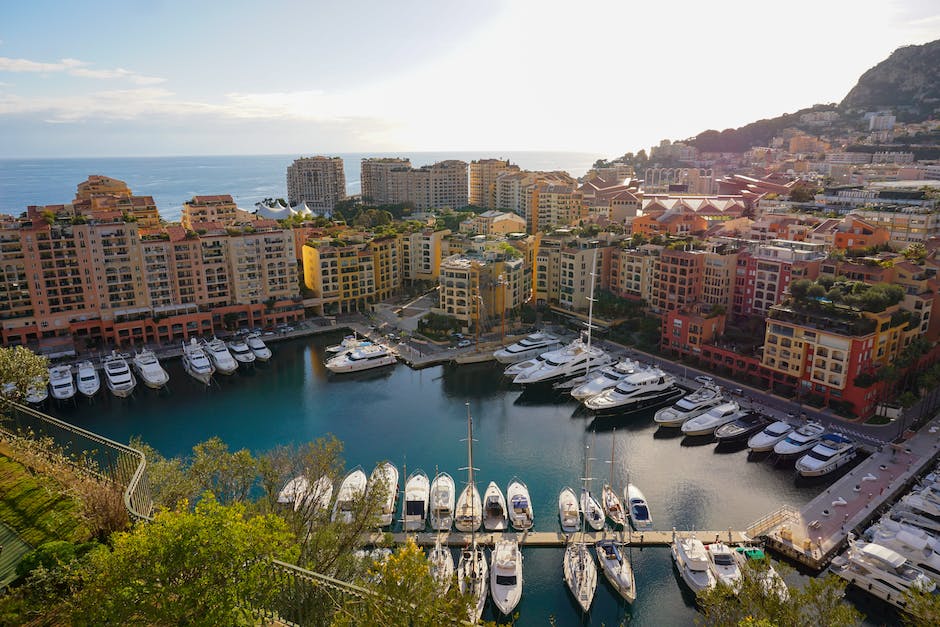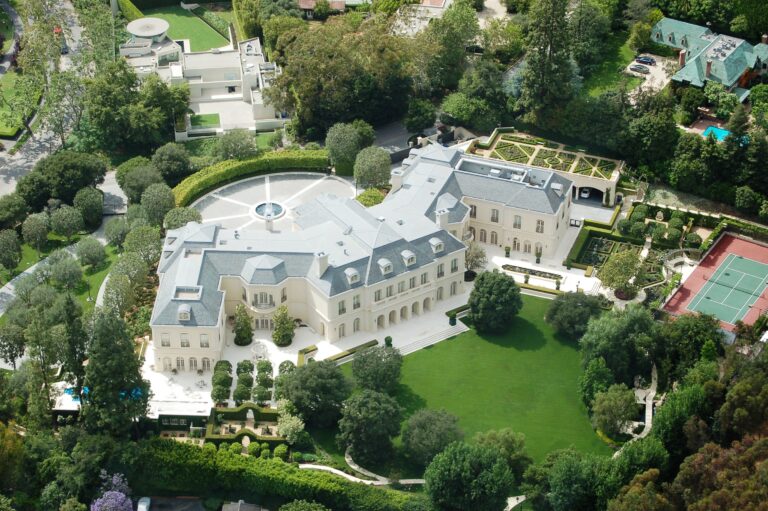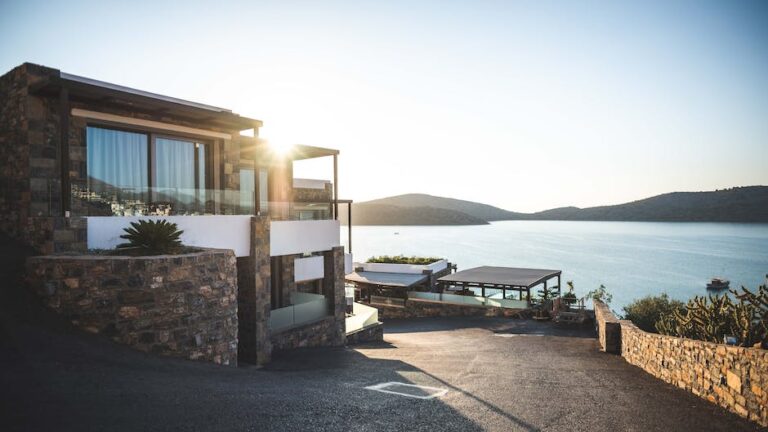Is Living in Monaco Tax-Free
Nestled along the sparkling shores of the French Riviera lies a tiny gem that has always captured the imagination of the world: Monaco. This glamorous city-state, renowned for its breathtaking vistas, luxurious lifestyle, and glittering casinos, has long been a magnet for the rich and famous. But is there more to the principality than just glitz and glam? One question that has intrigued both the aspirational and the financially savvy is whether living in Monaco provides a delightful escape from the clutches of taxes. Today, we embark on a no-nonsense exploration to uncover the truth about the famed tax haven, and whether the myth of a tax-free paradise holds up to scrutiny. So, put on your detective hat, because it’s time to delve into the financial nuances of this millionaire’s playground.
Table of Contents
- Is Living in Monaco Tax-Free?
- Intriguing Tax Benefits for Residents of Monaco
- Understanding Monaco’s Unique Tax System
- Exploring the Financial Advantages of Living in Monaco
- Practical Considerations before Relocating to Monaco
- Guidance for Those Considering Monaco as a Tax Haven
- FAQs
- In Conclusion
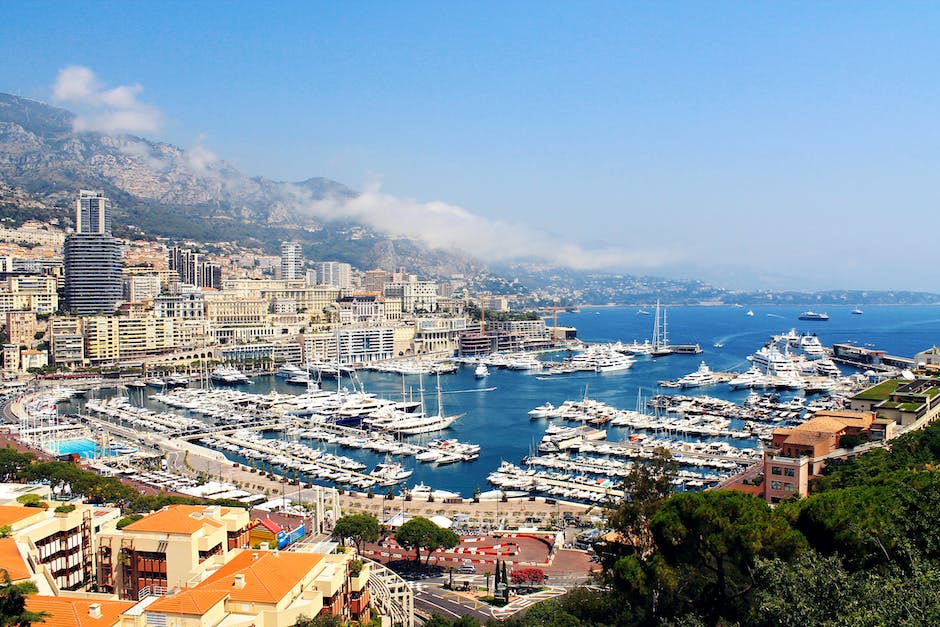
Is Living in Monaco Tax-Free?
Living in Monaco may seem like a dream come true for those seeking tax advantages. While it is true that Monaco offers several attractive tax benefits, it is important to understand the finer details.
One of the main perks of living in Monaco is the absence of income tax for residents. This means that individuals who choose to call Monaco their home are not required to pay income tax on their earnings. Additionally, there is no capital gains tax, which is appealing for those with substantial investments. Furthermore, inheritance tax is not applicable within the borders of Monaco, allowing residents to pass on their wealth to future generations without the burden of hefty taxes. It is worthwhile mentioning that there are no property taxes, making it even more appealing for individuals looking to invest in real estate in this glamorous destination.
Although the tax advantages are undeniable, it is important to consider the cost of living in Monaco. With its reputation as a luxurious and high-end destination, the cost of housing and general expenses can be quite steep. It is necessary to have a substantial income or significant savings to fully enjoy the tax benefits of living in Monaco. Additionally, there may be certain eligibility criteria and residency requirements that need to be fulfilled in order to benefit from these tax advantages. Therefore, it is advisable to consult with a professional to fully analyze your individual circumstances and ensure that living in Monaco is the right financial choice for you.
Intriguing Tax Benefits for Residents of Monaco
Residents of Monaco enjoy a host of intriguing tax benefits that make this glamorous city-state an attractive destination for the financially savvy. Monaco is renowned for its status as a tax haven, offering residents the opportunity to maximize their wealth while minimizing their tax burden. Here are some of the enticing tax advantages that come with being a resident of Monaco:
1. ZERO personal income tax: One of the most alluring benefits for residents is the complete absence of personal income tax. Monaco does not impose taxes on personal income, allowing individuals to keep more of what they earn. This is a significant advantage compared to many other countries where income tax can take a hefty chunk out of one’s earnings.
2. NO wealth tax: In Monaco, residents are exempt from wealth tax, meaning that there are no levies imposed on their assets or possessions. This frees individuals from the burden of divulging their wealth and ensures that their hard-earned fortunes remain untouched.
3. NO capital gains tax: Investors will be delighted to discover that Monaco does not impose capital gains tax. This means that individuals can buy and sell assets, such as stocks or real estate, without worrying about any taxes on the profits they make.
Living in Monaco offers an advantageous tax environment that is difficult to find elsewhere. The absence of personal income tax, wealth tax, and capital gains tax make this city-state an attractive destination for those seeking to preserve and grow their wealth.
Understanding Monaco’s Unique Tax System
Monaco’s tax system stands out as one of the most unique in the world, attracting both curiosity and admiration. This small principality nestled on the French Riviera proudly boasts an absence of personal income tax, making it an appealing destination for high-net-worth individuals and entrepreneurs looking to preserve their wealth. Understanding the intricacies of Monaco’s tax system is essential for those considering residency or doing business within its borders.
In Monaco, residents are not subjected to personal income tax, providing a significant financial advantage. This means that individuals can keep their hard-earned income without having to share a portion with the government. Moreover, there is no capital gains tax or wealth tax levied in Monaco. This makes the principality an appealing haven for those seeking to protect and grow their assets. However, it is worth noting that while Monaco may offer tax advantages, it is essential to consider other factors such as the cost of living, real estate prices, and the requirement of substantial wealth before deciding to relocate or establish a business in this glamorous city-state. Regardless, Monaco’s unique tax system undoubtedly adds to its allure and continues to fascinate the world.
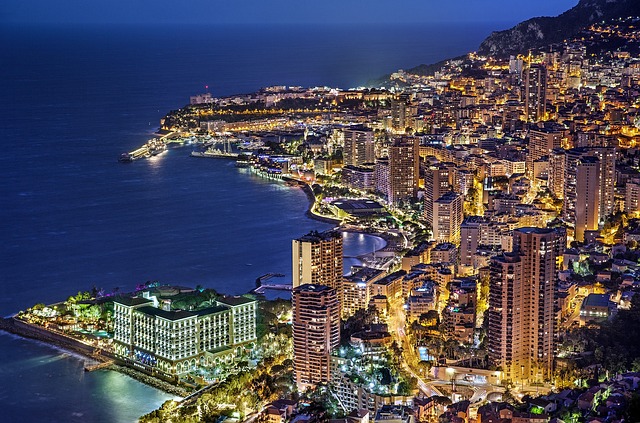
Exploring the Financial Advantages of Living in Monaco
Living in Monaco offers a plethora of financial advantages that make it an attractive destination for many individuals. This tiny sovereign city-state on the French Riviera not only boasts breathtaking views and a prestigious lifestyle, but also presents unique opportunities for those seeking a favorable financial environment.
One of the most significant advantages of residing in Monaco is its tax system. The principality imposes no personal income tax, no capital gains tax, and no inheritance tax. This means that individuals can retain more of their hard-earned income, enjoy tax-free capital gains, and pass on their wealth to their heirs without any tax burden. Moreover, Monaco is also known for its low corporate taxes, making it an ideal location for entrepreneurs and businesses looking to minimize their tax liabilities. These tax benefits are undoubtedly a game-changer when it comes to personal and business finance, positioning Monaco as a highly attractive destination for those seeking favorable tax advantages.
- Monaco has zero personal income tax.
- There are no capital gains or inheritance taxes in Monaco.
- The principality boasts low corporate taxes.
Another noteworthy financial advantage of living in Monaco is its exceptional banking and financial services sector. The principality is renowned for its stability and confidentiality, with a well-established banking infrastructure that caters to the needs of high-net-worth individuals and international investors. Monaco’s financial institutions are known for their efficiency, professional services, and expertise, ensuring that residents have access to highly reliable and secure banking services. Furthermore, the principality offers an array of investment opportunities, allowing individuals to diversify their portfolios and potentially make lucrative financial gains.
To sum it up, Monaco’s financial advantages are truly remarkable. With its favorable tax system and exceptional banking services, living in this glamorous city-state provides individuals and businesses with opportunities to grow their wealth, protect their assets, and enjoy a secure and advantageous financial environment.
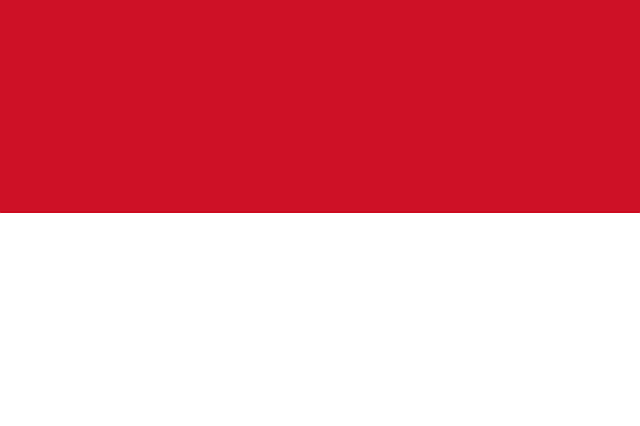
Practical Considerations before Relocating to Monaco
Considering a relocation to Monaco? Before you start packing your bags, there are a few practical considerations worth taking into account. Let’s delve into some important factors that can greatly impact your decision-making process:
First and foremost, it’s crucial to evaluate the cost of living in Monaco. As one of the wealthiest and most glamorous destinations in the world, the principality is undoubtedly an expensive place to reside. Prepare yourself for steep prices in various aspects of life, including accommodation, dining, and leisure activities. Keep in mind that rent prices in Monaco are exceptionally high, so be sure to factor this in when budgeting. Additionally, groceries and other daily necessities tend to be expensive compared to many other locations. However, it’s worth mentioning that Monaco residents benefit from no personal income tax, which can be a significant financial advantage.
Another practical consideration revolves around the size of the principality. Covering just 2 square kilometers, Monaco is the second smallest country in the world. While its diminutive size contributes to its charm and beauty, it also means limited space. As a result, the real estate market can be highly competitive, and finding suitable accommodation may require some patience and flexibility. Additionally, the small size translates to a dense population, which can lead to crowded streets, especially during peak tourist seasons. However, the compact nature of Monaco allows for easy access to amenities and an efficient transportation system, making it convenient for daily commutes and exploring the city’s attractions.
In summary, relocating to Monaco requires careful consideration of the high cost of living and the challenges associated with limited space. While these aspects may pose some practical difficulties, the principality’s allure and unique advantages make it a popular choice for those seeking luxury and an exceptional quality of life

Guidance for Those Considering Monaco as a Tax Haven
Considering Monaco as a tax haven? Look no further for expert guidance that will help you navigate the ins and outs of this prestigious destination. Here are some essential pointers to keep in mind:
- Residency Requirements: To become a resident of Monaco, be prepared to spend at least 183 days per year in the country. Additionally, having a legitimate source of income and demonstrating financial independence are crucial.
- Taxation Benefits: One of the main attractions of Monaco is its generous tax advantages. As a tax haven, Monaco does not levy personal income tax, capital gains tax, or wealth tax. However, it’s important to note that other countries may tax your income generated outside Monaco, so researching your own country’s tax laws is advisable.
- Banking and Financial Services: Monaco is renowned for its world-class banking and financial services. From private banking to asset management, the principality offers an array of services to suit your needs. It’s recommended to consult with professionals who specialize in offshore banking to ensure compliance and tap into the full potential of these services.
When considering Monaco as a tax haven, it is crucial to work closely with legal and financial experts who can navigate the intricacies of international tax planning and ensure a smooth transition. Monaco offers an attractive combination of financial stability, security, and a luxurious lifestyle, but understanding the regulations and requirements is key to maximizing the advantages. By following these guidance tips and seeking professional advice, you can confidently explore the possibilities of Monaco as a tax haven.
FAQs
Q: Is living in Monaco tax-free?
A: Yes, indeed! Living in Monaco is tax-free.
Q: Do residents of Monaco pay any income tax?
A: No, residents of Monaco are not required to pay any income tax.
Q: What about capital gains tax?
A: Fortunately, there is no capital gains tax in Monaco either.
Q: Are there any wealth taxes in Monaco?
A: No, there are no wealth taxes imposed on residents of Monaco.
Q: What about inheritance tax?
A: Great news! Monaco does not levy any inheritance tax.
Q: Are there any property taxes?
A: Nope, residents of Monaco are exempt from property taxes as well.
Q: Are there any indirect taxes in Monaco?
A: Unfortunately, yes. While direct taxes are non-existent, Monaco does have some indirect taxes, such as value-added tax (VAT) on goods and services.
Q: How does Monaco sustain its tax-free status?
A: Monaco’s tax-free status is supported by other sources of revenue, including its booming tourism industry, luxury goods market, and a modest VAT.
Q: Can anyone become a resident of Monaco?
A: To become a resident, one must meet certain criteria as defined by the local government. These requirements typically involve investing a specific amount of money in Monaco, proving financial stability, and having a clean criminal record.
Q: Is it worth moving to Monaco for its tax benefits alone?
A: While the tax benefits in Monaco are enticing, it is important to note that the cost of living in Monaco is considerably high. It is crucial to carefully evaluate your personal circumstances and financial situation before considering a move.
Q: Is living in Monaco truly tax-free?
A: Yes, living in Monaco is often referred to as tax-free due to its favorable tax regime, but there are some nuances to consider.
Q: What taxes are exempted for residents of Monaco?
A: Residents of Monaco are exempt from income tax, capital gains tax, and wealth tax, making it an attractive destination for high-net-worth individuals.
Q: Do Monaco residents pay any taxes at all?
A: While income and capital gains taxes are waived, there are still certain taxes like VAT, real estate transfer tax, and a minimal social security contribution.
Q: Can anyone become a resident of Monaco to benefit from the tax advantages?
A: Monaco has specific residency requirements, including proving sufficient financial resources and establishing genuine ties to the country, before one can become a resident and enjoy tax benefits.
Q: Are there any potential downsides to living in Monaco for tax reasons?
A: While taxes are low, the cost of living in Monaco is quite high, including real estate prices, making it essential to weigh the overall financial implications.
Q: How can I establish genuine ties to Monaco as a prospective resident?
A: Genuine ties could include renting or owning property, having Monaco-based bank accounts, and participating in local social and cultural activities.
Q: Are there any reporting requirements for Monaco residents?
A: Yes, residents need to provide annual proof of their financial situation and continue to meet the residency criteria to maintain their status.
Q: Can businesses also benefit from Monaco’s tax advantages?
A: Yes, businesses established in Monaco can benefit from low corporate taxes, especially if a significant portion of their activities is carried out within the country.
Q: Are there any countries that have a tax treaty with Monaco?
A: Monaco has entered into tax information exchange agreements with several countries to combat tax evasion and ensure transparency.
Q: Is Monaco considered a tax haven?
A: Monaco’s tax regime and financial privacy have led some to label it as a tax haven, although recent efforts have been made to align with international tax standards.
Q: Are there any citizenship requirements to become a resident of Monaco?
A: While residency doesn’t necessarily lead to citizenship, you must live in Monaco for at least ten years before you can apply for citizenship.
Q: Can I work remotely for a foreign company while living in Monaco?
A: Yes, remote work for a foreign company is generally permitted, but it’s advisable to understand the specifics of your situation to ensure compliance with local regulations.
Q: How does Monaco fund its public services with such low taxation?
A: Monaco’s revenue comes from sources like tourism, real estate, and its vibrant financial services sector, helping to support public services despite the low taxation.
Q: Are there any restrictions on bringing wealth into Monaco?
A: Monaco doesn’t impose any wealth tax, so individuals can bring their wealth into the country without facing additional taxation based solely on their wealth.
Q: What steps can I take to ensure I understand all the implications of moving to Monaco for tax reasons?
A: Consulting with financial advisors and legal experts who are knowledgeable about Monaco’s tax laws and regulations is essential before making any decisions about relocating for tax purposes.
The Conclusion
In conclusion, living in Monaco can be a dream come true for those seeking a tax-free lifestyle. With no personal income tax for residents, it offers a unique opportunity to keep more of your hard-earned money in your pocket. The allure of a luxurious lifestyle, stunning surroundings, and ample career opportunities make Monaco an attractive destination. However, it’s crucial to consider factors beyond taxes, such as the high cost of living and limited space. So, while tax benefits are undeniably appealing, it’s essential to weigh the pros and cons before making the move. Ultimately, the decision to live in Monaco should align with your personal goals and circumstances.

